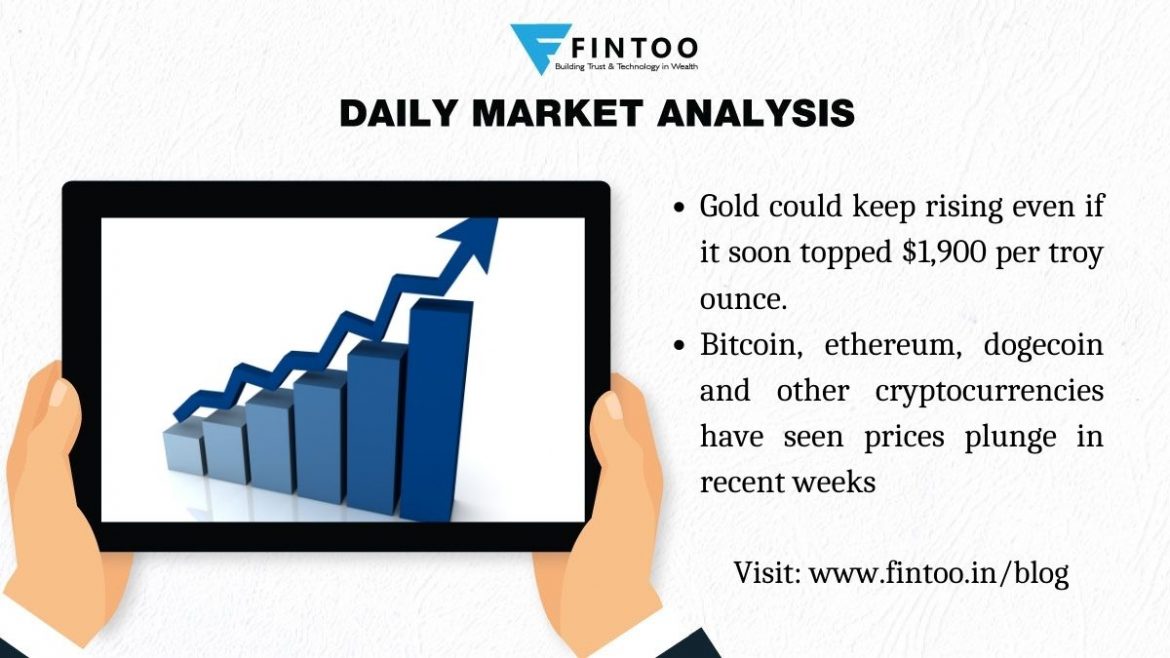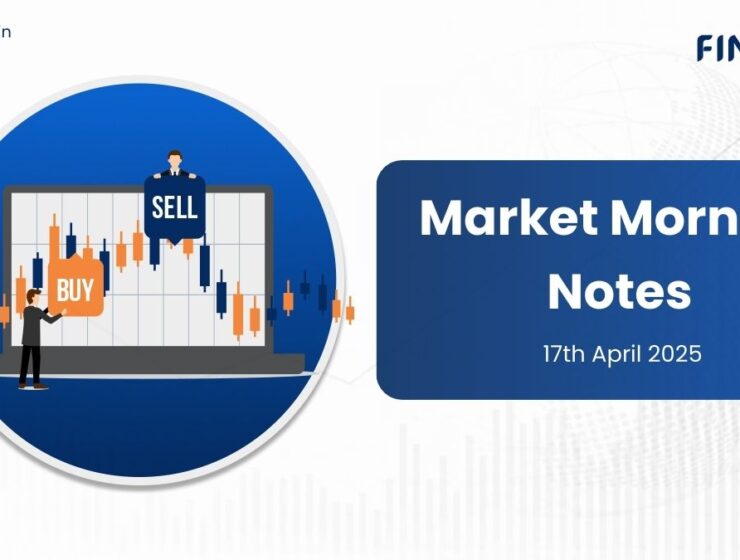

Gold is still ‘relatively cheap’ and could surge back toward its all-time high
Gold is still a “relatively cheap” investment opportunity and could keep rising even if it soon topped $1,900 per troy ounce, one strategist said Thursday. TD Securities head of global strategy Richard Kelly told CNBC’s “Street Signs Europe” that “gold had a phenomenal run-up over the course of last year, and when that reversed, I think it scared a few investors off.” The spot gold price hit an all-time high of $2,063 per troy ounce in August last year. However, Refinitiv data shows it now stands at $1,877. Gold was under pressure in the first few months of 2021. This came amid a sharp jump in U.S. Treasury yields as traders started to bet that inflation would cause the Federal Reserve to hike interest rates and taper its accommodative monetary policy. Gold is traditionally seen as a hedge against inflation but any attempts by central banks to rein in inflation is usually bad for bullion.
Oil settles higher on stronger demand outlook as U.S inventories fall
Oil prices settled higher on Wednesday as a drop in U.S. crude stockpiles reinforced expectations of improving demand ahead of the peak summer driving season, offsetting worries that a possible return of Iranian supply would cause a glut. Brent settled up 16 cents, or 0.3%, to $68.87 a barrel and U.S. West Texas Intermediate (WTI) crude settled up 14 cents, or 0.2%, at $66.21 a barrel. Both benchmarks pared losses after government data showed U.S. crude stocks at the Cushing, Oklahoma, storage hub fell last week to the lowest since March 2020. Refiners ramped up utilization rates to pre-pandemic levels. Russia said the Organization of the Petroleum Exporting Countries and allies, a group known as OPEC+, should consider a possible increase in Iranian output when assessing further steps. OPEC+ is bringing back 2.1 million barrels per day (BPD) of oil production through July, easing cuts to 5.8 million BPD. Their next meeting is set for June 1.
Mainland Chinese markets jump more than 2% as Asia stocks rise; investors watch regional tech shares
Mainland Chinese stocks led gains regionally, with the Shanghai composite rising 2.4% on the day to 3,581.34. Investors also monitored technology stocks in Asia-Pacific on Tuesday following gains for their counterparts overnight stateside. Singapore’s economy expanded by 1.3% year-on-year in the first quarter, official data released Tuesday showed. The country’s Ministry of Trade and Industry also announced Tuesday that it would maintain Singapore’s GDP growth forecast for 2021 at “4.0 to 6.0 percent.”
Indians invested ₹700 cr in U.S. markets via Stockal in FY 21
Global investing platform Stockal revealed that over 50,000 investors from India invested more than ₹700 crores in U.S. stock markets in companies like Tesla, Netflix, Apple, etc., in the last 12 months. “We saw more than ₹3,500 crores worth of transactions last year. There hasn’t been a better time to start investing abroad,” the company added.
Global property markets ready to soar this year on monetary, fiscal support
Average home selling prices have hit eye-watering levels in 2021 in some countries. That trend is expected to continue, driven by low mortgage rates, swift vaccine rollouts, and the easing of restrictions after deep pandemic-induced recessions last year. The global boom in property prices comes alongside soaring stock markets, which quickly bounced back from a slump on pandemic-driven economic damage and devastating job losses, to focus on unprecedented stimulus and the recovery at hand. Reuters polls of more than 100 property market experts taken May 11-24 showed big upgrades to house price forecasts for the United States, Britain, Canada, Australia, and Dubai compared with just three months back, outpacing expected GDP growth and consumer price inflation.
European stocks steady after Tuesday’s rout, eyes on U.S. inflation data
European stocks steadied on Wednesday after their worst selloff this year as strong earnings reports and signs of a speedy economic recovery offset concerns about a rapid rise in prices. The pan-European STOXX 600 index rose 0.2 percent after falling almost 2% on Tuesday as investors offloaded riskier assets on worries that rising U.S. inflation could lead to tighter monetary policy. European earnings are now expected to surge 90.2 percent in the first quarter, as per Refinitiv IBES data, up from a forecast of 83.1 percent growth last week. UK’s blue-chip FTSE 100 outperformed as data showed Britain’s economy grew by a stronger-than-expected 2.1 percent in March from February. Ample liquidity, a global semiconductor shortage and a recent rally in commodity prices are adding to fears of inflation as developed economies gradually reopen after lockdowns. All eyes will be on U.S. consumer price data for April that is due later in the day, with analysts expecting a 3.6 percent lift in year-on-year prices, boosted by last April’s low base.
Chinese bitcoin traders still wield ‘enormous influence’ despite Beijing’s 4-year crypto crackdown
Chinese bitcoin traders continue to thrive despite Beijing’s four-year crackdown on cryptocurrencies, experts told CNBC. China shut down local exchanges and banned initial coin offerings in 2017, but this year, there have been renewed fears of a harsher crackdown from authorities. Bitcoin’s price has been impacted by recent comments from industry bodies and regulators regarding cryptocurrency in China.
Bitcoin crash opens door to a tax loophole for investors
Bitcoin, ethereum, dogecoin and other cryptocurrencies have seen prices plunge in recent weeks. These investors can leverage those losses in a way that a typical stock or mutual fund investor can’t. That’s because the so-called wash sale rules don’t apply to crypto, according to financial advisors. But there are important caveats. Crypto investors may be shellshocked by a recent plunge in prices. But that sell-off has a silver lining: It opens the door to a money-saving tax strategy. Popular cryptocurrencies like bitcoin and ethereum shed more than half their value in volatile trading over the past month or so. A bitcoin investor who bought at the mid-April peak (around $65,000) and sold low on Wednesday (near $30,000) would have lost 54%, but crypto losses are treated differently than those of stocks and mutual funds. That’s because so-called wash sale rules don’t apply, according to financial advisors. This offers two benefits to crypto investors: They can sell crypto for a loss, and then use that loss to reduce or eliminate capital gains tax on winning investments. Then, they can quickly buy back the crypto they sold so as not to miss out on a subsequent rebound in price.
Also read: Daily Market Analysis – 28th Apr 2021 (Cryptocurrency) – Fintoo Blog
Japan can be an another good option for Diversification
Investing in international markets comes with various benefits. Investors benefit from diversification across different geographies, thereby spreading the investment risk across different economies. With value investing back in fashion, Japan can emerge as the next hotspot. The Bank of Japan has been one of the largest investors in Japanese stocks through exchange-traded funds. With nearly 30 trillion yen incremental investments (around $50 billion per year) since 2016, its presence can add another pillar of strength to the Japanese markets. While domestic institutional investors have not been favouring equities due to unpleasant experiences in the past, the recent run-up in global yields may push them to realign their investment portfolios from debt to equity. This can be another trigger for the next set of inflows into the Japanese markets. Japan has been a diversified market, with the financial sector, insurance companies, auto industries, manufacturing, and trading companies having a fair representation.
To Invest and keep regular track of your portfolio download: Fintoo App Android http://bit.ly/2TPeIgX / Fintoo App iOS http://apple.co/2Nt75LP
Related Posts
Stay up-to-date with the latest information.


